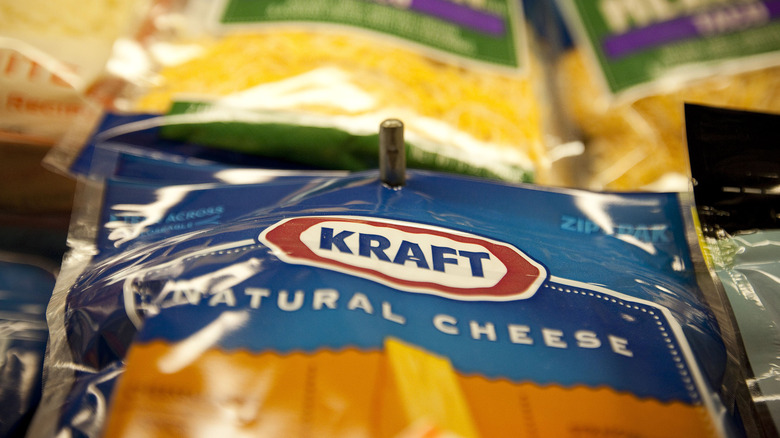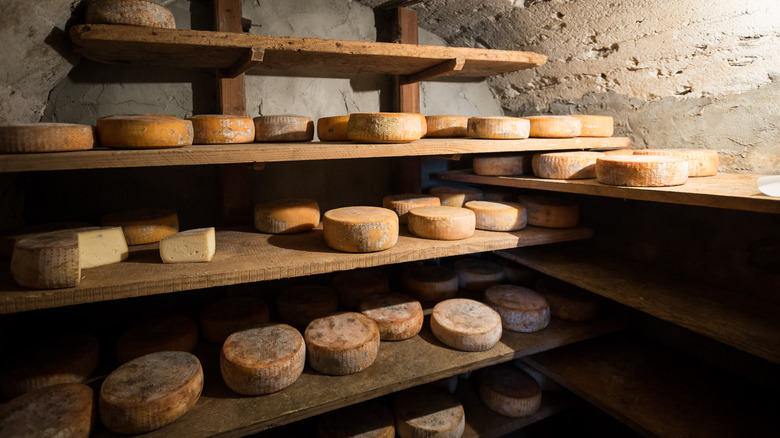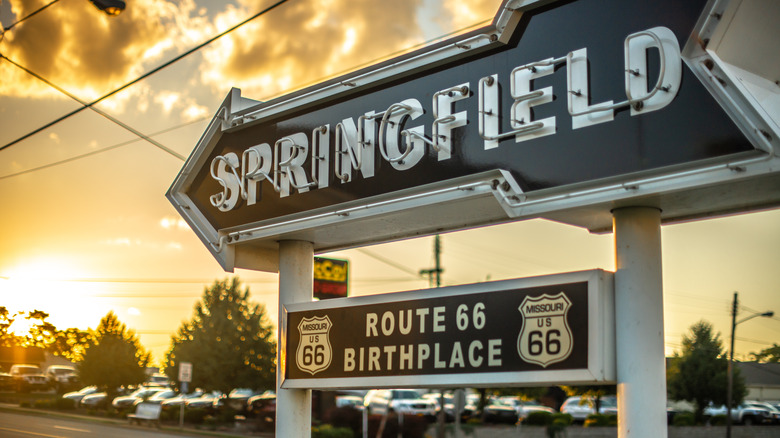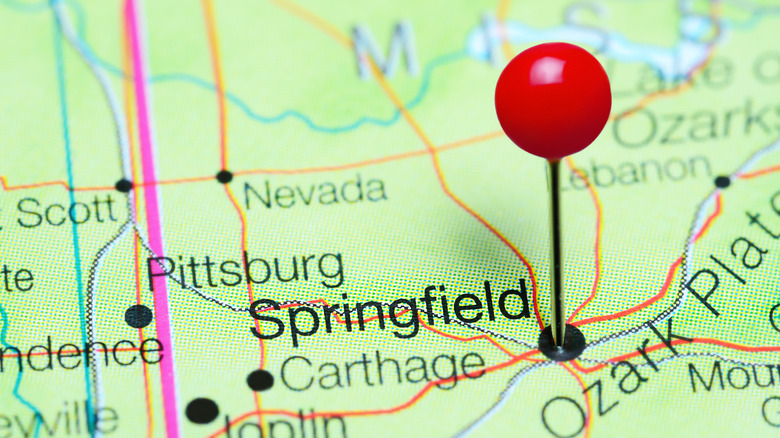Why A Missouri Cave Stores Millions Of Pounds Of Cheese
Springfield, Missouri, a city of about 170,000 in the southwestern part of the "Show-Me State," has been nicknamed the "Queen City of the Ozarks." For decades, travelers on Route 66 passed through the community, and indeed, Springfield considers itself the "Birthplace of Route 66," according to the city's website.
Like a lot of Midwestern cities, Springfield has a number of industrial parks — after all, commerce and jobs are important anywhere you live. However, the city also has a rather unique industrial park: a repurposed limestone mine, which now offers millions of square feet of storage space. Springfield Underground is so expansive that 18-wheelers can (and do) drive through it — hundreds of them each day, picking up and/or dropping off the goods that are stored in there. Sometimes, even trains pass through the facility.
But what many people don't know is that one of the most prolific "tenants" is Kraft Foods, which stores millions of pounds of cheese and related products in the former mine.
Caves and cheese go way back
Humans have been eating cheese for thousands of years, according to The Week, and indeed, the product is a fundamental part of Western cuisine. However, when you think about it, it's actually kind of gross. You take milk from a cow, sheep, goat or another mammal, expose it to bacteria and/or mold, wait until it's solid, and then eat it.
Of course, that's a bare-bones explanation of a complicated process with multiple variables. One of those variables is where and for how long cheese is aged, and for centuries, man has been aging it in caves. Away from sunlight, humidity, and high temperatures, or critters that might want to eat it, the product is imbued with what the French call "terroir." This untranslatable word means something like "earthness." In other words, the flavor, aroma, and texture of the cheese represents the best natural elements of the place where it was made: the grass the animals ate, the soil in which the grass grew, the coolness of the cave in which it aged, and so on.
But that's not why Kraft chose Springfield
Kraft Foods, the multinational conglomerate that makes countless grocery products in addition to cheese, is about none of that, however. A slice of Kraft cheese is going to be less about terroir and fastidious attention to fine craftsmanship, and more about cost-saving and long-term shelf life. Springfield's caves provide at least one factor in that equation: the temperature inside is about 60 degrees, according to KTVI, and artificial refrigeration does the rest. Of course, Kraft doesn't just store cheese there — according to a 2001 report in Good, they also store Lunchables, Jell-O, Oscar Mayer-branded meats, and other perishable products there too.
For businesses keen to keep things at a consistent temperature, and a consistently low temperature at that, the Springfield caves represent a financial windfall as the cost of climate control on the ground would otherwise be astronomical.
"There's an enormous energy saving being underground if you are going to refrigerate space because you're not dealing with the temperature fluctuation of the outside environment," said John Griesemer, President and CEO of the group that manages the facility (via KTVI).
There are other reasons that make Springfield an attractive place for industrial food storage. It is centrally located (at least, as centrally located as you can get in the U.S. and still be in a populated area). Joplin (a major transportation and trucking hub) is a short drive away, and Interstate 44 connects the city to nearby St. Louis and Oklahoma City, each an afternoon's drive away.
It's not just Kraft products down there
Due to its location underground, and the fact that it takes getting past security to see inside, just what goes on in the Springfield Underground is a great source of rumor around town, according to a May 2022 Springfield News-Leader report. Similarly, KTVI reported whispers around town are that there's a veterans' hospital down there. There isn't.
Kraft is, however, not the only company to lease space in the former mine, and indeed, not even the only food or dairy company. Officially, Springfield Underground's people aren't talking about what happens in there, due to confidentiality agreements in their contracts. However, with a few phone calls, a News-Leader reporter was able to confirm that Dairy Farmers of America, which has a plant in town, like Kraft, stores and/or ages some of its products in the former mine, too.
The newspaper does note that not all of the space in the facility is given over to dairy storage. Although, again, whatever else is stored there is a matter of confidentiality.
A quintessentially Missouri business model?
There's a reason Missouri was called The Cave State for decades. It is chock-a-block with caves, both natural and artificial, due to the prevalence of mining and quarrying in the state. And it seems that enterprising companies and individuals have found a way to leverage that to make a buck for at least a century.
Back in the 1800s, "a bunch of thirsty Germans show[ed] up" in St. Louis, as local cave enthusiast Joe Light explained, and made quick use of the caves under the city to store and age their beer in the cool environment, just as German brewers had been doing for centuries (via Terrain). One of those "thirsty Germans" was Adolphus Busch. Today, St. Louis is home to the Anheuser-Busch brewery.
Meanwhile, across the state in Carthage, near Joplin, lies another underground storage facility similar to Springfield's, and is also a former mine, according to Tenfour. There's yet another as well in Kansas City.
Of course, it bears noting that underground facilities like this aren't limited to the Show-Me State, and there are similar businesses in Pennsylvania and Kentucky, among others.




